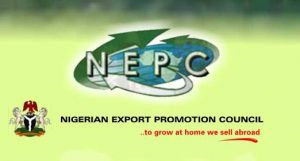EXPORTS: What You Need To Know
 Export isn’t an all-comers affair and obtaining an export license isn’t all that is required to delve into exports. This week’s edition of Shipper’s Guide takes you through the rudiments of exporting
Export isn’t an all-comers affair and obtaining an export license isn’t all that is required to delve into exports. This week’s edition of Shipper’s Guide takes you through the rudiments of exporting
Export for Beginner (Illustration)
For instance, Mr. X, a successful manufacturer has been in business for about fifteen years. He is turning out a good product; it is selling well in Nigeria; and he would like to extend his plant and increase his production. But to do this, he needs more customers. He has an idea. Why not look for those new customers in foreign markets as well as at home. This will not only help him, but will bring into his country more of the foreign exchange that it needs.
At this point, he is taking the first step towards becoming an effective exporter – because exporting begins with a state of mind. It is not, or should not be a casual business. A businessman should enter upon an export campaign with energy and determination and with the intention of persevering in it. If he views foreign markets merely as a place to get rid of occasional surpluses, he is an in-and-outer, who makes no enduring impression. Worse, he can damage his country’s reputation as a reliable international trader.
A businessman usually cannot or will not turn into a successful exporter within weeks or even months. It will probably take much longer. But the time and care taken to select the right product and the right place or places for an initial export venture can minimize the risk and make ultimate success quicker and more certain.
Exporting does begin with a state of mind – a state of mind that a firm’s management must share. The management must believe in this importance of exporting, and must realize that it is wise and will be profitable to diversify it markets. To start with, it must ensure that export orders always receive the same attention as domestic orders; that money is set aside for research into markets, travel, and promotion; that knowledge about foreign markets is systematically acquired and kept up-to-date. At some stage, it may even consider allocating a certain amount of production to export, and then prepare to go out and sell.
First of all, do your homework and know yourself. Realize that it is a commitment for a long, long term. Know your strengths and go for it. Outlined below is a guide to export trade:
An overview of Export TradeCategories of Exporter
You can export Products/Services from Nigeria under the following categories:
– Merchant – Agent – Producer/ManufacturerChallenges
As a beginner in the trade, you may experience some challenges. Some of which are:
(i) Lack of product and Market information
(ii) Logistics Management of export trade
(iii) Non conversant with export procedures and documentation
(iv) Lack of access to fund to start export business
(v) Lack of export culture
How to develop an export culture
Find below some of the ways to develop an export cu;ture:
(i) Ignorance about exports
(ii) Become aware of exports but do nothing
(iii) Start attending workshops/seminars/conferences to acquire export knowledge and
(iv) pick-up trial contract and begin to export
To start exporting, individuals, companies/cooperatives should seek further understanding on the following subjects:-
• Registration with NEPC as an exporter
• The Export Quotation
• Product sourcing
• Market knowledge
• Funds Sourcing
• Making An Export Offer
• Payment methods
• Export Documentations
Other information required are:
• PRE-SHIPMENT INSPECTION OF EXPORTS (NESS)
• INCOTERMS 2010
• ECOWAS Trade Liberalisation Scheme
• Export Documentations
Export Documentations is the important records of an international transaction. It includes using the correct trade terminology, right certifications for quality/standard/origin etc from appropriate authority, clearly defining the transfer of interest and liability, selecting the right method of payment and sending the best quotations. At the end of each sales, proper and timely selection,preparation and distribution of documents form part of effective exporting.
• Costing & Pricing for Export
Costing is concerned with collecting and providing historical information about expenditures incurred in or attributable to a whole range of activities and products of enterprises.
The computation of the actual cost of producing a product and bringing it to market or providing a service is the core element in determining whether exporting is financially viable.
• Market Entry Strategy
A market entry strategy is the planned method of deliverying goods or services to a target market and distributing them there.







